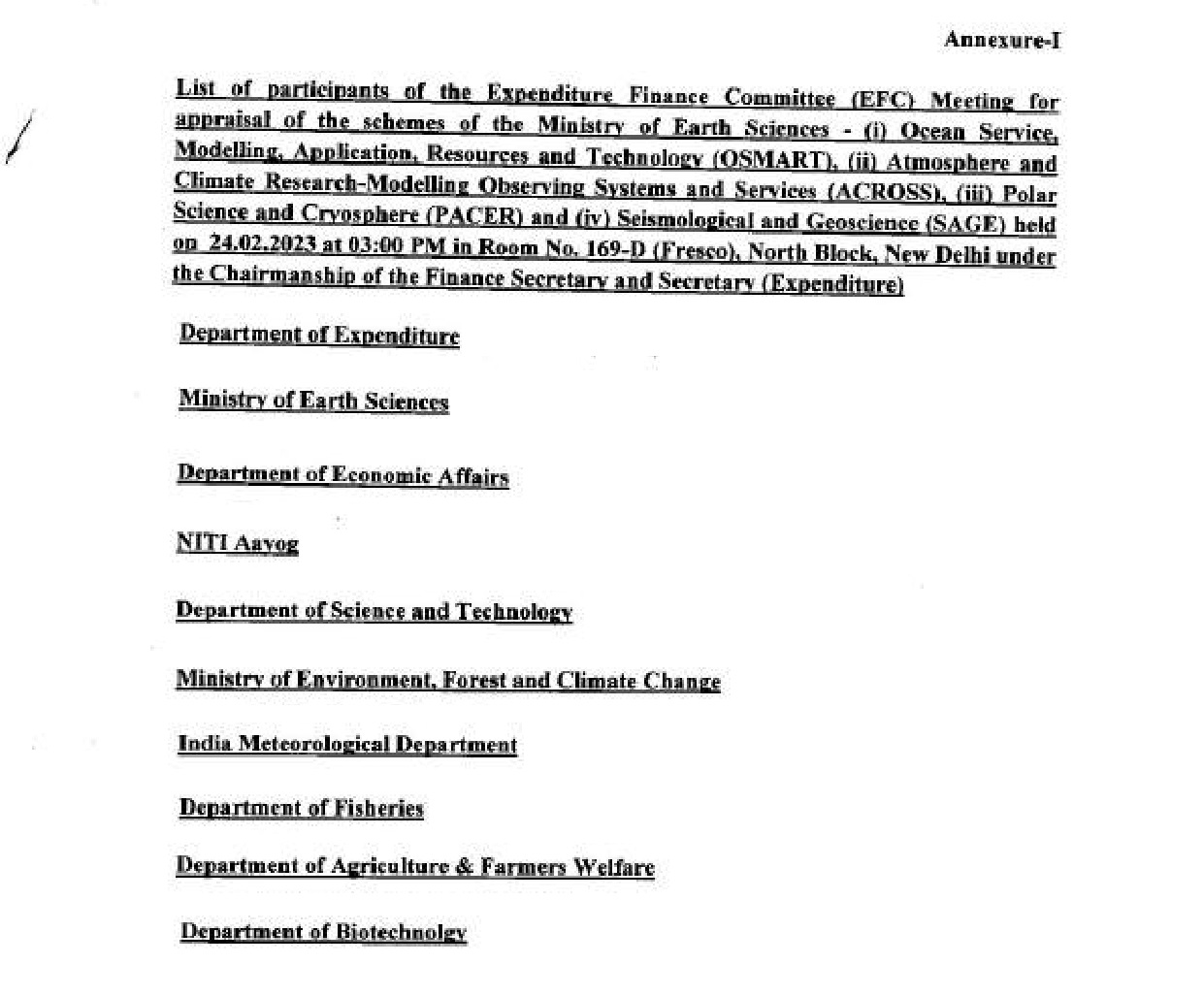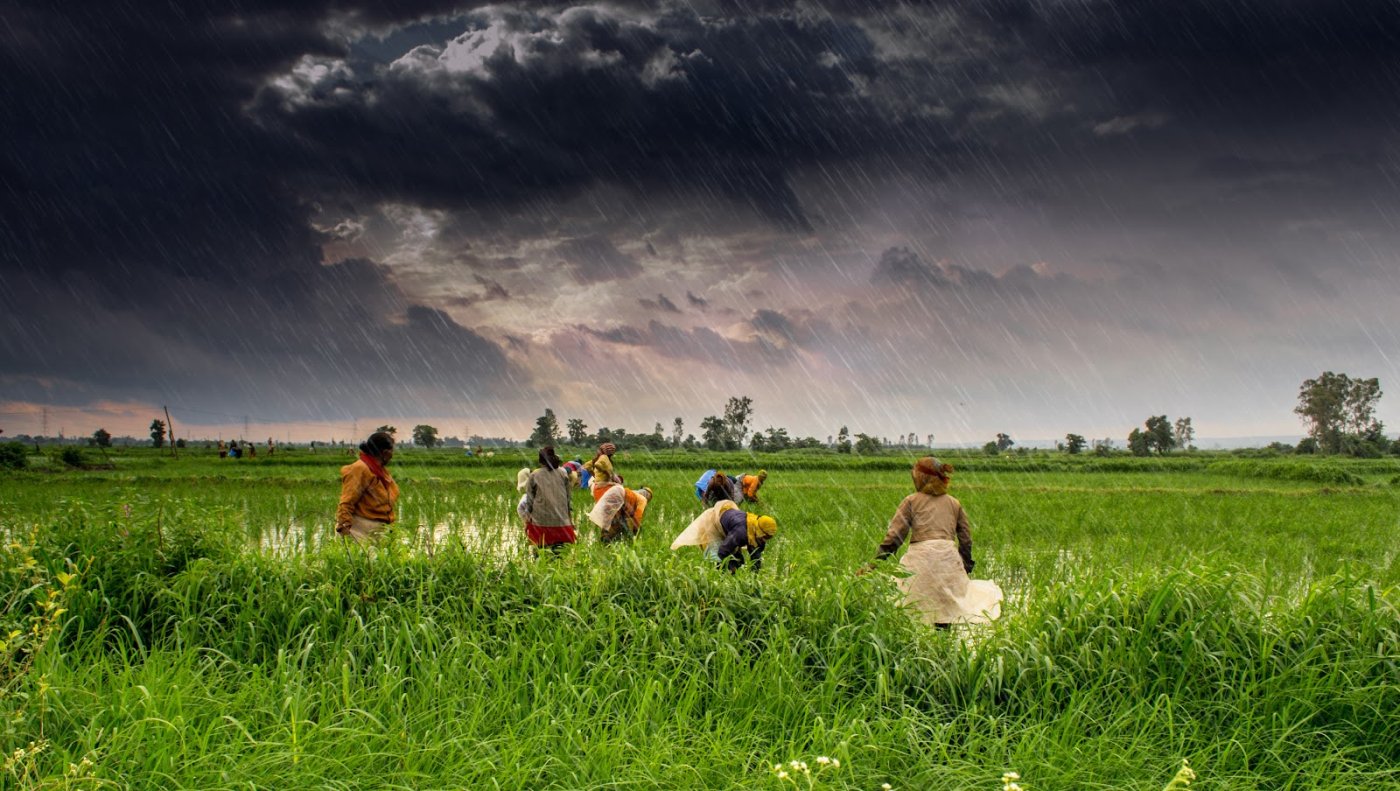Bengaluru: As the accelerating pace of climate change and a worsening farm crisis endangers the livelihoods of India’s 145 million farmers, the government of Prime Minister Narendra Modi ended critical weather-advisory services without accounting for their benefits, according to right-to-information responses obtained by this reporter.
The responses revealed that the government’s think tank, the NITI Aayog, misrepresented the role of the 199 district agro-meteorological units (DAMUs), shut down after an order issued by the Indian meteorological department (IMD) on 17 January 2024.
First set up in 2018, agromet units provided farmers free-of-cost weather advisory services, and crucial information related to sowing, use of fertilisers, harvesting and storing crops.
“Weather advisory services were available to all farmers at the block-level across districts,” said Kamalesh Kumar Singh, a scientist who formerly headed agromet advisory services at the IMD.
These advisories were sent to farmers via WhatsApp groups, text messages, TV and radio programs, local newspapers and also direct communication from officers in the Krishi Vigyan Kendras ( KVKs).
“This service [by agromet staff] should continue. We had many reports within the ministry of earth sciences (MoES) which showed that the benefits to the farming community are in the thousands of crores of rupees every year,” said Singh, the former IMD official. “The budget outlay every year was around Rs 45 crore, and the benefit was around Rs 15,000 crores.”
The benefits were calculated based on higher yields for farmers, who used weather advisory services and lowered costs of fertilisers and pesticides, based on recommendations from agromet staff.
These were vital services at a time when climate change is making farming in India more uncertain than ever, and incomes of farmers have barely risen, despite a promise made by Prime Minister Narendra Modi in 2016, and repeated in 2018, that farm incomes would double by 2022.
Instead, between 2014-15 and 2021-22, agricultural wages, adjusted for inflation, rose by no more than 0.9%, according to economist Jean Dreze.
Privatise Agromets: NITI Aayog
The NITI Aayog suggested that district agromet services be privatised and monetised, according to the documents obtained under the right to information act (RTI) 2005, as opposed to the existing free services.

Experts said that most farmers would not be able to afford to subscribe to a private service.
“Farmers growing cereals cannot pay for these services,” said Singh. Farmers who grow crops like wheat, maize, rice, millets and pulses are often far weaker economically than farmers engaged in practices like horticulture.
Early in February 2024, union minister of road transport and highways, Nitin Gadkari wrote to MoES minister Jitendra Singh seeking a continuation of agromet unit services. He wrote that, “if DAMUs are discontinued, it will have an adverse impact on agriculture production, food security and livelihood of the farming community and, thus, they should continue”.
On 3 February 2024, the Association of Agrometeorologists, based in Gujarat, wrote to the Prime Minister expressing “deep concern and disappointment” about the decision to shut down the agromet units.
They wrote of the “invaluable contribution” of agromet units in “building climate resilience within the farming community to cope with the challenges faced by present day-to-day weather variability, and menace of extreme climatic events”, and sought an extension of agromet unit services, beyond the 199 units that were previously operational.
Neither the prime minister nor his office responded to the letter.
Benefits Ignored
Numerous studies (here, here and here) over the years point to benefits of weather advisory services in India. Most recently, a 2023 study showed that by locating agro-met units in KVKs and by customising the weather information to make it useful for local conditions and providing in-person communication, via state agricultural departments, these services had increased acceptance among farmers.
These individualised services, particularly imparting information in-person, in local languages, helped build rapport between farmers and agromet staff. This helped farmers trust the information they were being given and saw more of them putting it into practice.
“It was very useful to receive information about weather patterns like rainfall in advance. And also about disease risk to our crops,” said Sathri Shersingh, a farmer from Khandwa in Madhya Pradesh. “The government should continue this service because it was benefitting many farmers”
These services were provided under the Gramin Krishi Mausam Sewa (GKMS) programme, a collaboration between the IMD, under the ministry of earth sciences (MoES), and the Indian Council of Agricultural Research (ICAR), under the ministry of agriculture and farmers welfare.
The agromet units were located at KVKs, which serve as links between farmers and the ICAR. KVKs are associated with local agricultural universities.
None of these benefits were taken into account when the decision to wind up agromet units was taken in a meeting held on 24 February 2023, according to the RTI documents.
The meeting, chaired by the Finance Secretary and Secretary (Expenditure) was attended by representatives of 10 ministries and government departments including the ministry of earth science, agriculture, environment, the IMD, and the NITI Aayog.

Article 14 sought comment, on 26 March 2024, from Anurag Goyal and Amaresh Nashi, the two NITI Aayog officials, who were present at the meeting. We sent reminders on 10 April and 4 July. There was no response. If they respond, we will update this story.
“It’s all politics,” said an agromet unit official, speaking on condition of anonymity, fearing reprisal for talking to the media.
“NITI Aayog says that agromet units staff are not doing any work,” said the official. “They don’t want the government to invest Rs 50 crore every year in such farmer support activities. We can say the government also supports this view because NITI Aayog is ultimately under the government.”
“Even the IMD could not present the output of DAMUs properly at the [finance ministry] meeting,” said the official. “If they [NITI Aayog or the union government] would have asked farmers, they would have got to know our contribution.”
False Assertions
The RTI documents showed that NITI Aayog officials argued that the agromet units be shut because data was now automated, which is not true. Agromet staff customised central forecasts for local use and tailored data for other advisories, such as those related to the use of fertilisers.
The MoES, which runs the weather advisory services, along with the agriculture ministry, also falsely suggested that weather data analysis occurred only at the central level and the staff at district agromet units only disseminated the data.

After studying the RTI documents, Rakesh Nannewar, a PhD scholar at the National Institute of Advanced Studies, whose research focuses on the role of agromet advisories for Indian farmers, said, “Both the ministries [earth science and agriculture] failed to convey the role of agromet units at the finance ministry meeting.”
The staff at agromet units first collect weather forecast data from the IMD. They then cross-reference this with ground-level observational data. Next, they check the condition of crops such as the stage of harvest, or whether there are any location-specific issues such as pest attacks.
Factors like soil quality and weather vary from place to place, even within a district. “You cannot give the same advisory to all blocks in the district,” Nannewar said, noting that agromet unit staff turned stock weather data into usable agricultural advisories based on localised ground-level information.
Along with experts at KVKs, agromet unit staff also provided ancillary services such as training on agricultural practices and the use of climate-resilient seed varieties. “Their role is actually much bigger than what it is on paper,” Nannewar said.
Agricultural advisories provided under the GKMS scheme were “very helpful to farmers and also helped agro-meteorologists [i.e. agromet unit staff] provide quality advisories to farmers,” said A V M Subba Rao, PhD, principal scientist (agromet) at the Central Research Institute for Dryland Agriculture, a government research institute
He added that the information provided allowed farmers to make “important decisions” that would benefit them financially.
The idea behind agromet units, Nannewar, the PhD scholar quoted earlier, said, was to help farmers reduce crop loss from extreme variations in weather conditions and to lower their expenses.
The RTI responses showed that, essentially, the NITI Aayog and the MoES minimised the role of the 199 district agromet units in the country and led to them being closed.
The shutting down of agromet units was “a policy decision by the government of India,” said Mrutyunjay Mohapatra, director general of meteorology at the IMD. He added that the government consensus was that automated, electronic communication of weather data was preferable to employing people to work at the agromet units.
Asked if the ministry believed that agromet unit staff only disseminated information without any value addition, Mohapatra said the issue was subjudice and refused further comment.
Many agromet unit staff approached high courts in some states, such as Madhya Pradesh, Odisha, Maharashtra and Delhi, to challenge the decision to shut down the units. The cases continue.
(Rishika Pardikar is a freelance environment reporter.)
Get exclusive access to new databases, expert analyses, weekly newsletters, book excerpts and new ideas on democracy, law and society in India. Subscribe to Article 14.

